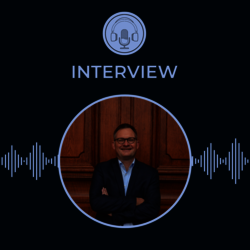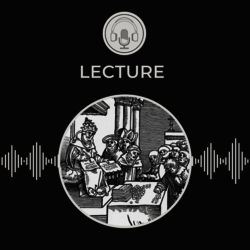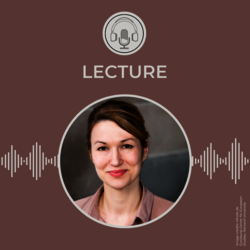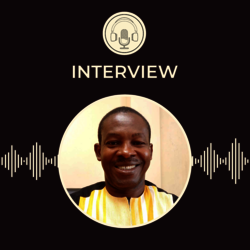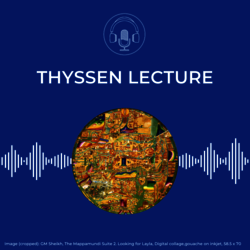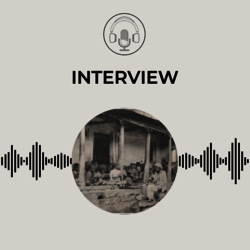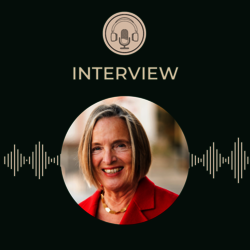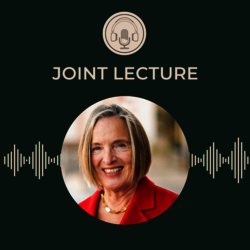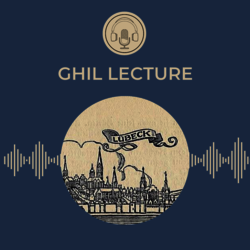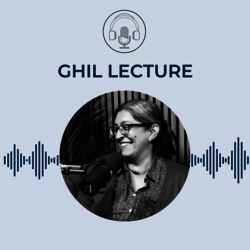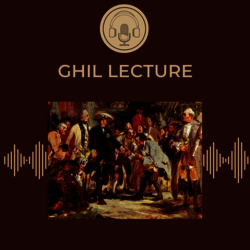 GHIL Podcast
GHIL Podcast
Welcome to the podcast of the German Historical Institute London. In each podcast episode, ranging from interviews to lecture recordings, we take a look at historical research from different periods and areas. Subscribe to our podcast to learn more about our research and work at the GHIL.
Selected lectures and events are available as audio files. You can either download these files directly or subscribe to the GHIL podcast. Please note that due to the Covid-19 pandemic, recordings have been made remotely by the speakers using the technical equipment available, resulting in variable sound quality.
Subscribe to the GHIL Podcast:
To receive the latest MP3 downloads as soon as they are published, you can subscribe to the GHIL Podcast feed with your RSS reader at www.ghil.ac.uk/podcasts.rss.
Our podcast episodes can also be found on Spotify, Google Podcasts and Apple Podcasts.
Latest Episodes
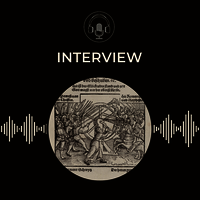
Interview
A linguistic legacy : The lasting impact of Reformation-era texts
Henrike Lähnemann, Thomas Kaal and Kim König
9 January 2026
, 0:21 h
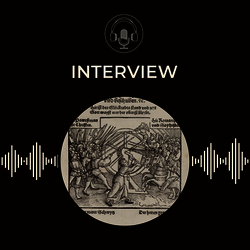
Interview
A linguistic legacy : The lasting impact of Reformation-era texts
Henrike Lähnemann, Thomas Kaal and Kim König

GHIL Lecture
1525 and All That : How Nuns’ Letters and Reformation Pamphlets Shaped German History
Henrike Lähnemann
18 November 2025
, 0:50 h
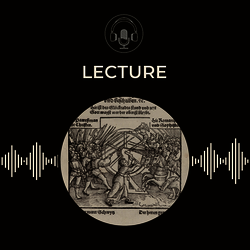
GHIL Lecture
1525 and All That : How Nuns’ Letters and Reformation Pamphlets Shaped German History
Henrike Lähnemann
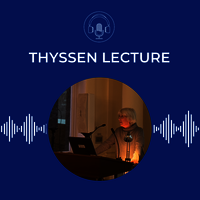
Thyssen Lecture
Local Modernity: Agency, Entanglement, and the Making of the Modern Middle East
Gudrun Krämer
13 October 2025
, 0:58 h
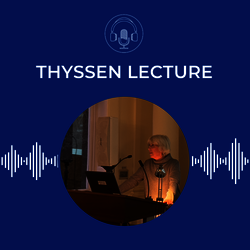
Thyssen Lecture
Local Modernity: Agency, Entanglement, and the Making of the Modern Middle East
Gudrun Krämer

Interview
What is a fever? : Examining illness, 1770-1830
Stefanie Gänger, Pascale Siegrist and Kim König
5 September 2025
, 0:18 h

Interview
What is a fever? : Examining illness, 1770-1830
Stefanie Gänger, Pascale Siegrist and Kim König
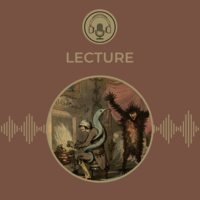
GHIL Joint Lecture
‘The Most Common and Fatal of All Diseases’ : Histories of Fever, 1770-1830
Stefanie Gänger
5 September 2025
, 0:47 h
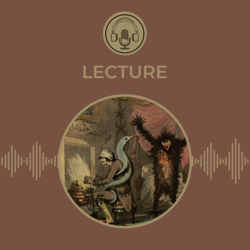
GHIL Joint Lecture
‘The Most Common and Fatal of All Diseases’ : Histories of Fever, 1770-1830
Stefanie Gänger

Interview
Urban issues : Social problems in late 20th-century European cities
Christiane Reinecke, Ole Münch and Kim König
8 August 2025
, 0:30 h

Interview
Urban issues : Social problems in late 20th-century European cities
Christiane Reinecke, Ole Münch and Kim König
Previous episodes
2026

Interview
A linguistic legacy : The lasting impact of Reformation-era texts
Henrike Lähnemann, Thomas Kaal and Kim König
9 January 2026
, 0:21 h

Interview
A linguistic legacy : The lasting impact of Reformation-era texts
Henrike Lähnemann, Thomas Kaal and Kim König
2025

GHIL Lecture
1525 and All That : How Nuns’ Letters and Reformation Pamphlets Shaped German History
Henrike Lähnemann
18 November 2025
, 0:50 h

GHIL Lecture
1525 and All That : How Nuns’ Letters and Reformation Pamphlets Shaped German History
Henrike Lähnemann

Thyssen Lecture
Local Modernity: Agency, Entanglement, and the Making of the Modern Middle East
Gudrun Krämer
13 October 2025
, 0:58 h

Thyssen Lecture
Local Modernity: Agency, Entanglement, and the Making of the Modern Middle East
Gudrun Krämer

Interview
What is a fever? : Examining illness, 1770-1830
Stefanie Gänger, Pascale Siegrist and Kim König
5 September 2025
, 0:18 h

Interview
What is a fever? : Examining illness, 1770-1830
Stefanie Gänger, Pascale Siegrist and Kim König

GHIL Joint Lecture
‘The Most Common and Fatal of All Diseases’ : Histories of Fever, 1770-1830
Stefanie Gänger
5 September 2025
, 0:47 h

GHIL Joint Lecture
‘The Most Common and Fatal of All Diseases’ : Histories of Fever, 1770-1830
Stefanie Gänger

Interview
Urban issues : Social problems in late 20th-century European cities
Christiane Reinecke, Ole Münch and Kim König
8 August 2025
, 0:30 h

Interview
Urban issues : Social problems in late 20th-century European cities
Christiane Reinecke, Ole Münch and Kim König

Interview
Picturing working class communities
Jon Lawrence, Ole Münch and Kim König
8 August 2025
, 0:25 h
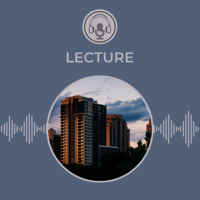
GHIL Lecture
Sociology and the Urban Experience : Double lecture
Jon Lawrence and Christiane Reinecke
8 August 2025
, 0:55 h
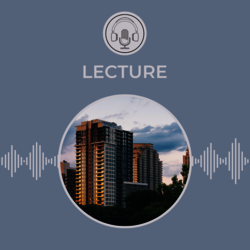
GHIL Lecture
Sociology and the Urban Experience : Double lecture
Jon Lawrence and Christiane Reinecke
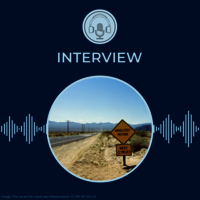
Interview
Mind the void : The importance of empty spaces in early modern Europe
Achim Landwehr, Ole Münch and Kim König
15 July 2025
, 0:25 h
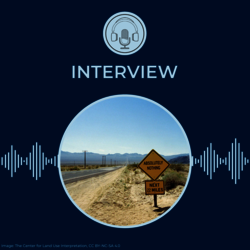
Interview
Mind the void : The importance of empty spaces in early modern Europe
Achim Landwehr, Ole Münch and Kim König
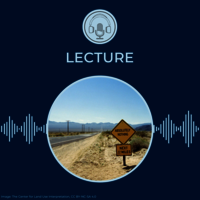
GHIL Lecture
The Hole Story : Voids and their Constitutive Role in European (Early) Modernity
Achim Landwehr
15 July 2025
, 0:46 h
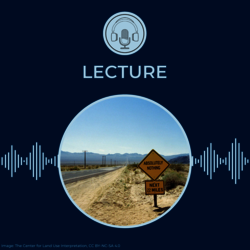
GHIL Lecture
The Hole Story : Voids and their Constitutive Role in European (Early) Modernity
Achim Landwehr
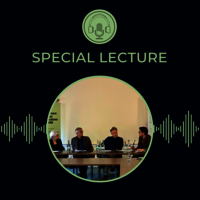
Special Lecture
London – Images as Evidence | Bilder als Beweise
Janina Struk, Paul Betts and James Bulgin
2 July 2025
, 1:07 h
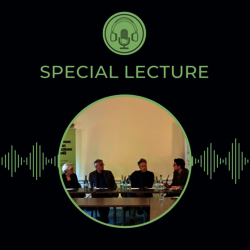
Special Lecture
London – Images as Evidence | Bilder als Beweise
Janina Struk, Paul Betts and James Bulgin
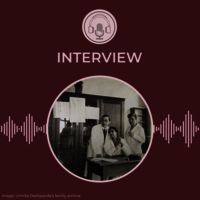
Interview
German racial science and modern anthropology in India
Thiago Barbosa, Indra Sengupta and Kim König
19 June 2025
, 0:28 h
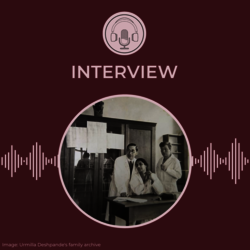
Interview
German racial science and modern anthropology in India
Thiago Barbosa, Indra Sengupta and Kim König

Interview
Processing history
Wolfgang Knöbl, Almuth Ebke and Kim König
12 June 2025
, 0:14 h
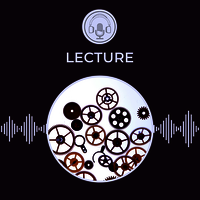
GHIL Lecture
The Problem with (Historical) Processes : Reflections on an Undertheorized Topic
Wolfgang Knöbl
12 June 2025
, 0:53 h
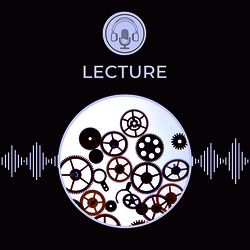
GHIL Lecture
The Problem with (Historical) Processes : Reflections on an Undertheorized Topic
Wolfgang Knöbl
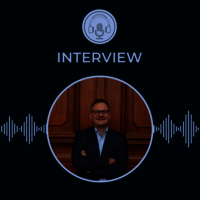
Interview
The power of protest
Philipp Gassert, Ole Münch and Kim König
28 May 2025
, 0:21 h
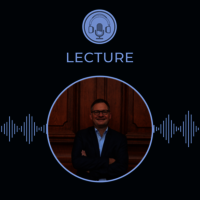
GHIL Joint Lecture
Contesting Political Spaces : Thoughts on a World History of Street Protest
Philipp Gassert
28 May 2025
, 0:43 h
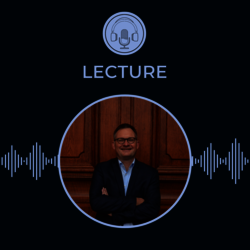
GHIL Joint Lecture
Contesting Political Spaces : Thoughts on a World History of Street Protest
Philipp Gassert
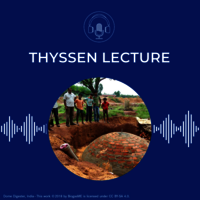
Thyssen Lecture
After Colonial Forms of Knowledge and Post-Colonial Technoscience: Revisiting the Historiography of Techniques and Technology
Dhruv Raina
19 May 2025
, 0:53 h
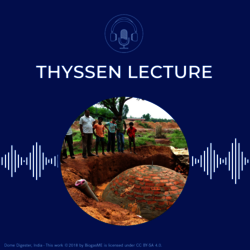
Thyssen Lecture
After Colonial Forms of Knowledge and Post-Colonial Technoscience: Revisiting the Historiography of Techniques and Technology
Dhruv Raina
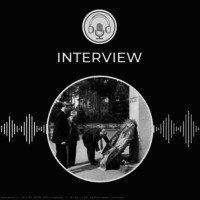
Interview
The Future of Historical Reconciliation Research
Christine Krüger, Pascale Siegrist and Kim König
25 April 2025
, 0:10 h
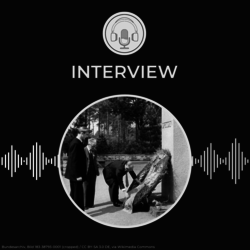
Interview
The Future of Historical Reconciliation Research
Christine Krüger, Pascale Siegrist and Kim König
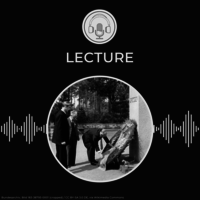
GHIL Lecture
Analysing Reconciliation and Irreconcilability from a Historical Perspective : The Example of Germany and Britain
Christine Krüger
25 April 2025
, 0:50 h
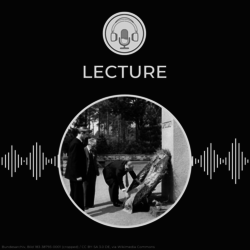
GHIL Lecture
Analysing Reconciliation and Irreconcilability from a Historical Perspective : The Example of Germany and Britain
Christine Krüger

Special lecture
Winners and Losers? : Britain and Germany after the Second World War
Lucy Noakes and Frank Trentmann
21 March 2025
, 1:03 h

Special lecture
Winners and Losers? : Britain and Germany after the Second World War
Lucy Noakes and Frank Trentmann
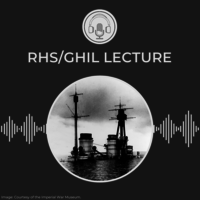
Special lecture
Raise, Reuse, Recycle : Global History and Marine Salvage in the Nineteenth and Early Twentieth Century
Roland Wenzlhuemer
Royal History Society Lecture
24 January 2025
, 0:49 h
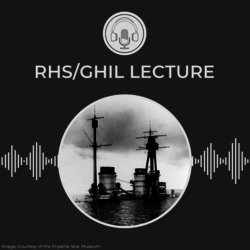
Special lecture
Raise, Reuse, Recycle : Global History and Marine Salvage in the Nineteenth and Early Twentieth Century
Roland Wenzlhuemer
2024

Interview
Globalization: a threat to democracy?
Julia Angster and Kim König
18 November 2024
, 0:20 h
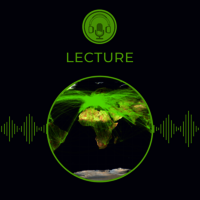
GHIL Joint Lecture
‘Post-Democracy’? : Globalization, Democracy, and the Nation State in Germany after 1990
Julia Angster
18 November 2024
, 0:42 h
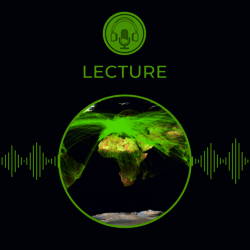
GHIL Joint Lecture
‘Post-Democracy’? : Globalization, Democracy, and the Nation State in Germany after 1990
Julia Angster
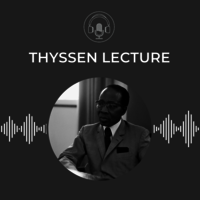
Thyssen Lecture
Understanding Power Relations in a Colonial Context: Top-Down, Bottom-Up, In-Between
Frederick Cooper
21 October 2024
, 0:49 h
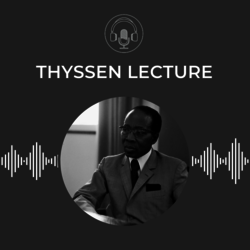
Thyssen Lecture
Understanding Power Relations in a Colonial Context: Top-Down, Bottom-Up, In-Between
Frederick Cooper
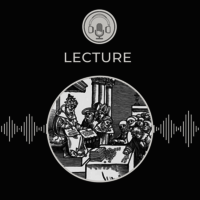
GHIL Lecture
Religious Decision-Making in the Reformation
Matthias Pohlig
16 September 2024
, 0:58 h
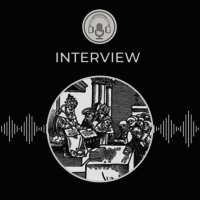
Interview
Catholic or Protestant in the Reformation : A simple choice?
Matthias Pohlig, Michael Schaich and Kim König
16 September 2024
, 0:21 h
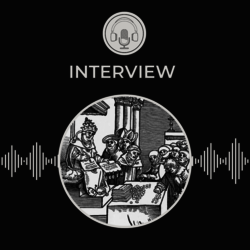
Interview
Catholic or Protestant in the Reformation : A simple choice?
Matthias Pohlig, Michael Schaich and Kim König
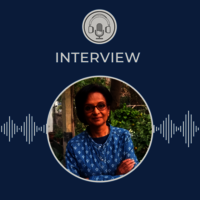
Interview
Criminology and 'scientific' penology in India, 1894-1955
Radhika Singha, Indra Sengupta and Kim König
1 August 2024
, 0:16 h
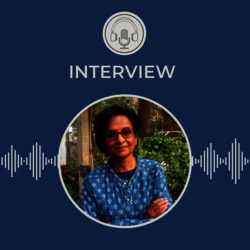
Interview
Criminology and 'scientific' penology in India, 1894-1955
Radhika Singha, Indra Sengupta and Kim König
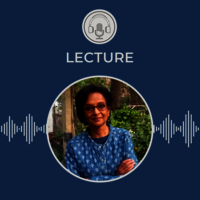
GHIL Lecture
International Penology in Colonial India: Too Advanced, Too American, Too Expensive?
Radhika Singha
1 August 2024
, 0:43 h
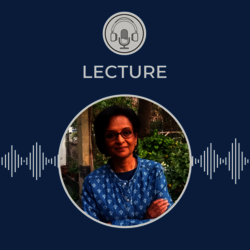
GHIL Lecture
International Penology in Colonial India: Too Advanced, Too American, Too Expensive?
Radhika Singha
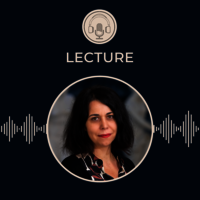
GHIL Joint Lecture
Societies under Siege: Experiencing States of Emergency in the Long Twentieth Century
Stefanie Middendorf
20 June 2024
, 0:49 h
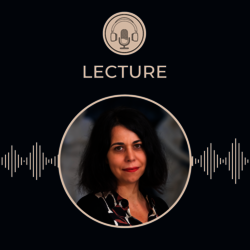
GHIL Joint Lecture
Societies under Siege: Experiencing States of Emergency in the Long Twentieth Century
Stefanie Middendorf
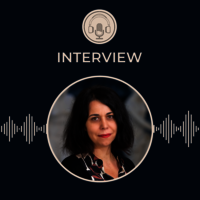
Interview
States of Emergency and the Social Dimensions of Administrative Agency
Stefanie Middendorf, Clemens Villinger and Kim König
20 June 2024
, 0:13 h
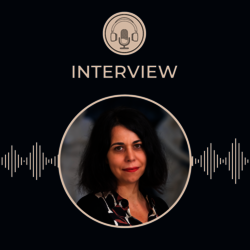
Interview
States of Emergency and the Social Dimensions of Administrative Agency
Stefanie Middendorf, Clemens Villinger and Kim König
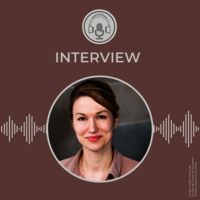
Interview
Federations, constitutions and the German Basic Law
Eva Marlene Hausteiner, Pascale Siegrist and Kim König
23 May 2024
, 0:13 h
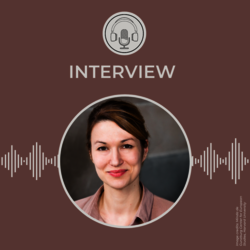
Interview
Federations, constitutions and the German Basic Law
Eva Marlene Hausteiner, Pascale Siegrist and Kim König
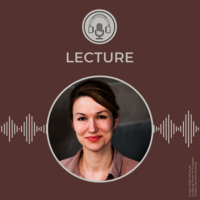
GHIL Lecture
Should Federations be Made to Last?
Eva Marlene Hausteiner
23 May 2024
, 0:35 h
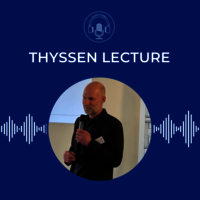
Thyssen Lecture
Colonial Times, Global Times: History and Imperial World-Making
Sebastian Conrad
1 May 2024
, 0:50 h
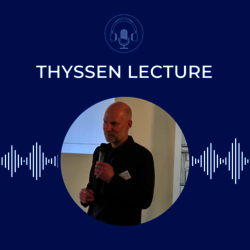
Thyssen Lecture
Colonial Times, Global Times: History and Imperial World-Making
Sebastian Conrad
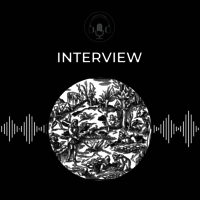
Interview
Bad pennies and revolting peasants : a monetary examination of the Peasants' War
Philipp Rössner, Marcus Meer and Kim König
2 April 2024
, 0:19 h
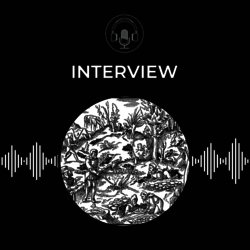
Interview
Bad pennies and revolting peasants : a monetary examination of the Peasants' War
Philipp Rössner, Marcus Meer and Kim König
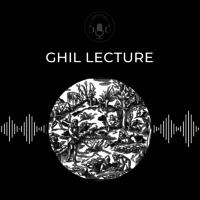
GHIL Lecture
Peasants, Wars, and Evil Coins : Towards a ‘Monetary Turn’ in Explaining the Revolution of 1525
Philipp Rössner
2 April 2024
, 0:41 h
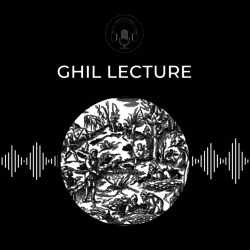
GHIL Lecture
Peasants, Wars, and Evil Coins : Towards a ‘Monetary Turn’ in Explaining the Revolution of 1525
Philipp Rössner
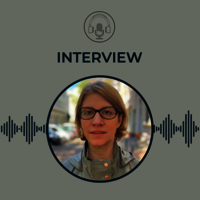
Interview
Global rankings : Imperial Germany and the rise of personal achievement culture
Nina Verheyen, Mirjam Brusius and Kim König
4 March 2024
, 0:14 h
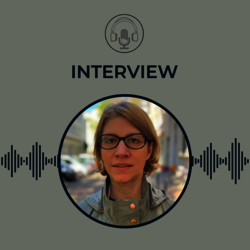
Interview
Global rankings : Imperial Germany and the rise of personal achievement culture
Nina Verheyen, Mirjam Brusius and Kim König
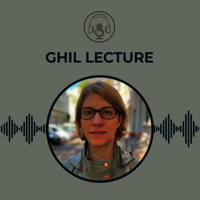
Joint Lecture
Global Connections and Personal Achievements : (De)centring the Self in Fin de Siècle Germany
Nina Verheyen
4 March 2024
, 0:47 h
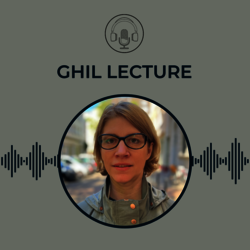
Joint Lecture
Global Connections and Personal Achievements : (De)centring the Self in Fin de Siècle Germany
Nina Verheyen
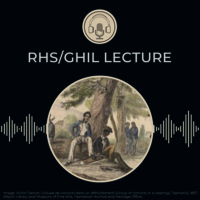
Special Lecture
Convicts, Creolization and Cosmopolitanism : Aftermaths of penal transportation in the British Empire
Clare Anderson
Royal Historical Society Lecture
22 February 2024
, 1:00 h
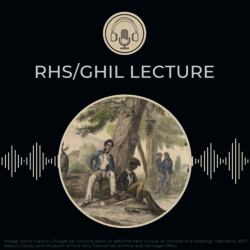
Special Lecture
Convicts, Creolization and Cosmopolitanism : Aftermaths of penal transportation in the British Empire
Clare Anderson
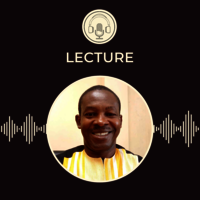
GHIL Lecture
The Perception of Colonial Cultural Goods and Human Remains among Communities in the Former German Colony of Togo in the Context of the Restitution Debate
Kokou Azamede
17 January 2024
, 0:49 h
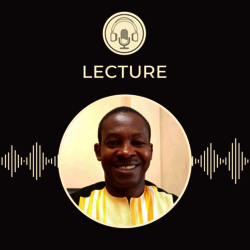
GHIL Lecture
The Perception of Colonial Cultural Goods and Human Remains among Communities in the Former German Colony of Togo in the Context of the Restitution Debate
Kokou Azamede
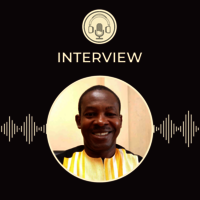
Interview
The restitution debate in Togo
Kokou Azamede, Mirjam Brusius and Kim König
17 January 2024
, 0:22 h
2023
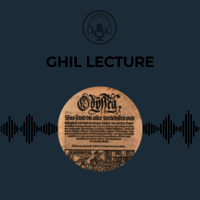
GHIL Lecture
Homer’s Heroes in Early Modern Germany : A Translational Anthropology
Regina Toepfer
13 December 2023
, 0:50 h
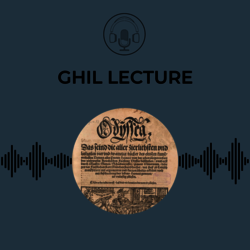
GHIL Lecture
Homer’s Heroes in Early Modern Germany : A Translational Anthropology
Regina Toepfer
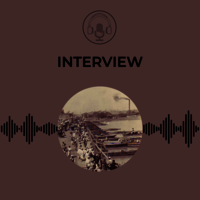
Interview
Pollution and the modern city : Lessons from India's past
Awadhendra Sharan, Indra Sengupta and Kim König
17 November 2023
, 0:20 h
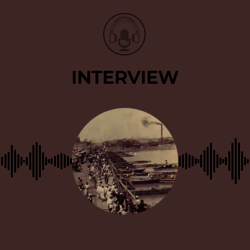
Interview
Pollution and the modern city : Lessons from India's past
Awadhendra Sharan, Indra Sengupta and Kim König
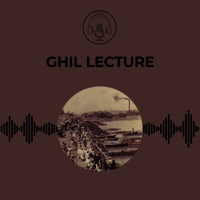
GHIL Lecture
India’s Atmospheric Modernity : Smoke, Particulate Matter, and the Modern City
Awadhendra Sharan
17 November 2023
, 0:52 h
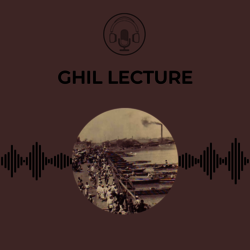
GHIL Lecture
India’s Atmospheric Modernity : Smoke, Particulate Matter, and the Modern City
Awadhendra Sharan
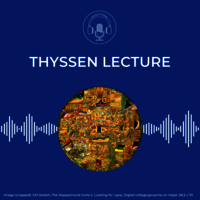
Thyssen Lecture
Imagining India in the Empire of Science
Sumathi Ramaswamy
20 October 2023
, 0:49 h
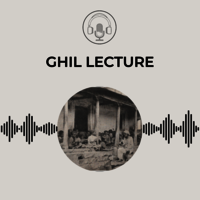
GHIL Lecture
The Classroom as Sensorium : Tactility, Attention, and Perception in the Mysore School, 1860–1930
Janaki Nair
13 October 2023
, 0:48 h
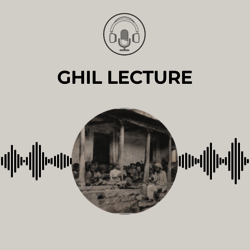
GHIL Lecture
The Classroom as Sensorium : Tactility, Attention, and Perception in the Mysore School, 1860–1930
Janaki Nair
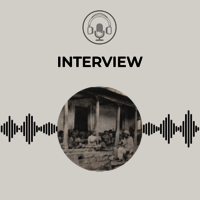
Interview
The history of schooling in colonial India
Janaki Nair, Indra Sengupta and Kim König
13 October 2023
, 0:28 h

Interview
Climate Crises and Politics in the Eighteenth Century
Patrick Anthony, Mirjam Brusius and Kim König
27 July 2023
, 0:14 h

Interview
Climate Crises and Politics in the Eighteenth Century
Patrick Anthony, Mirjam Brusius and Kim König
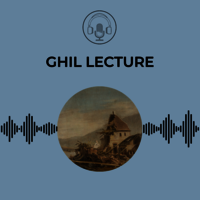
GHIL Lecture
Terrestrial Enlightenment : Ruin and Revolution in an Eighteenth-Century Climate Crisis
Patrick Anthony
27 July 2023
, 0:38 h
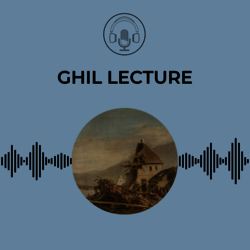
GHIL Lecture
Terrestrial Enlightenment : Ruin and Revolution in an Eighteenth-Century Climate Crisis
Patrick Anthony
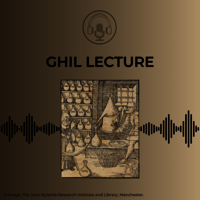
GHIL Lecture
The Scientific Analysis of Renaissance Recipes : Medicine and the Body in the German Material Renaissance
Stefan Hanß
3 July 2023
, 0:45 h
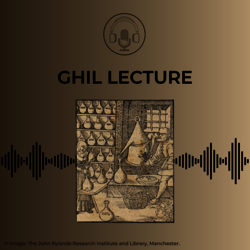
GHIL Lecture
The Scientific Analysis of Renaissance Recipes : Medicine and the Body in the German Material Renaissance
Stefan Hanß
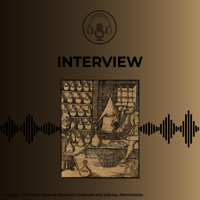
Interview
Analysing Renaissance recipes : Modern chemistry meets Renaissance medicine
Stefan Hanß, Mirjam Brusius and Kim König
3 July 2023
, 0:17 h
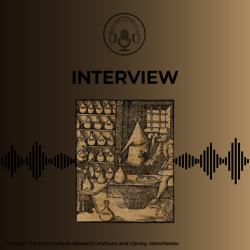
Interview
Analysing Renaissance recipes : Modern chemistry meets Renaissance medicine
Stefan Hanß, Mirjam Brusius and Kim König
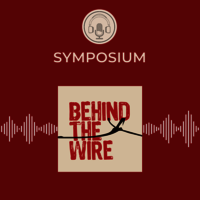
Symposium
Internment during the First World War. The Global German Experience : Launch event for Behind the Wire
Behind the Wire: Exhibition
10 May 2023
, 0:59 h
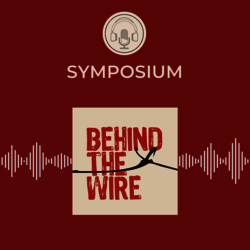
Symposium
Internment during the First World War. The Global German Experience : Launch event for Behind the Wire
Behind the Wire: Exhibition
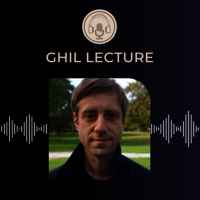
GHIL Lecture
Mediating Globalism in the Twentieth Century : The Cases of R. Buckminster Fuller and Arno Peters
David Kuchenbuch
28 March 2023
, 0:42 h
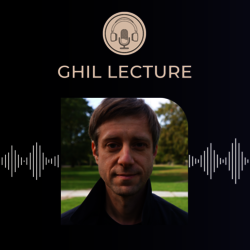
GHIL Lecture
Mediating Globalism in the Twentieth Century : The Cases of R. Buckminster Fuller and Arno Peters
David Kuchenbuch
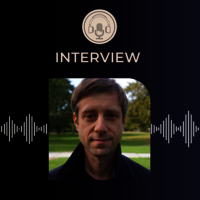
Interview
The history of globalism through the prism of media (and biography)
David Kuchenbuch, Pascale Siegrist and Kim König
28 March 2023
, 0:12 h
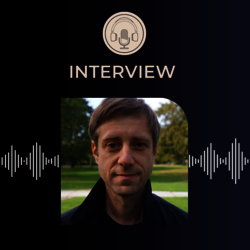
Interview
The history of globalism through the prism of media (and biography)
David Kuchenbuch, Pascale Siegrist and Kim König
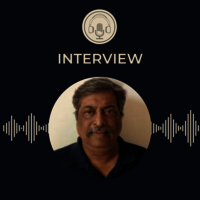
Interview
The employment contract in Indian labour history
Prabhu Mohapatra, Indra Sengupta and Kim König
16 March 2023
, 0:19 h
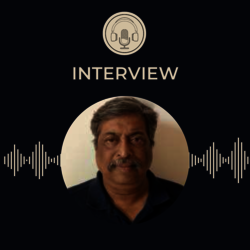
Interview
The employment contract in Indian labour history
Prabhu Mohapatra, Indra Sengupta and Kim König
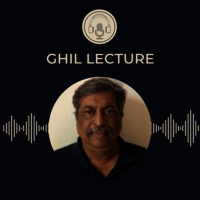
GHIL Lecture
A Genealogy of Labour Regulation in India : The Career of the Employment Contract
Prabhu Mohapatra
16 March 2023
, 0:55 h
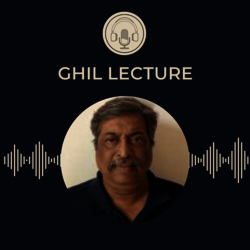
GHIL Lecture
A Genealogy of Labour Regulation in India : The Career of the Employment Contract
Prabhu Mohapatra
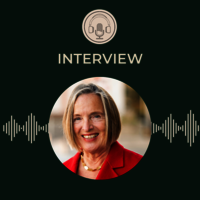
Interview
The influence of emotions on history
Ute Frevert, Ole Münch and Kim König
1 March 2023
, 0:16 h
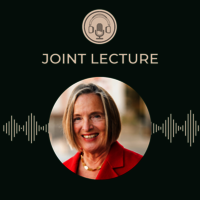
Joint Lecture
The Power of Emotions in German History
Ute Frevert
1 March 2023
, 0:47 h
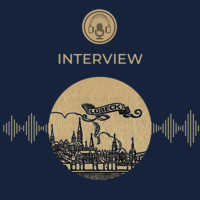
Interview
The Hanseatic League: a ‘secret superpower’
Carsten Jahnke, Mirjam Brusius and Kim König
13 February 2023
, 0:15 h
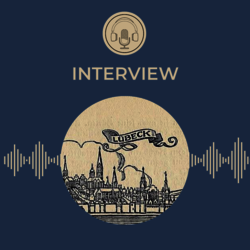
Interview
The Hanseatic League: a ‘secret superpower’
Carsten Jahnke, Mirjam Brusius and Kim König
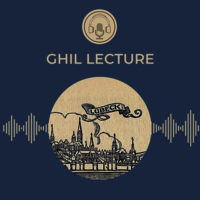
GHIL Lecture
The Hanseatic League as a National Project
Carsten Jahnke (Copenhagen)
13 February 2023
, 0:35 h
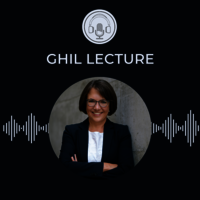
GHIL Lecture
‘A very English superstar’ : John Rutter, Popular Classical Music, and Transnational Conservatism since the 1970s
Martina Steber
23 January 2022
, 0:50 h
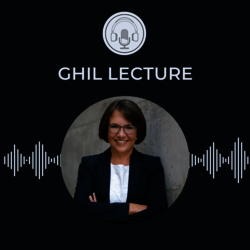
GHIL Lecture
‘A very English superstar’ : John Rutter, Popular Classical Music, and Transnational Conservatism since the 1970s
Martina Steber
2022
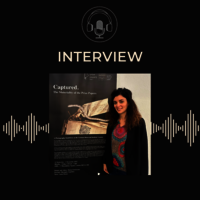
Interview
Captured. 'The Materiality of the Prize Papers' - A Photography Exhibition
Maria Cardamone
19 December 2022
, 0:21 h
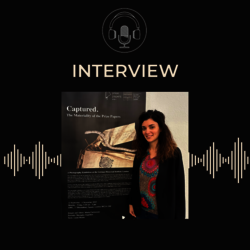
Interview
Captured. 'The Materiality of the Prize Papers' - A Photography Exhibition
Maria Cardamone
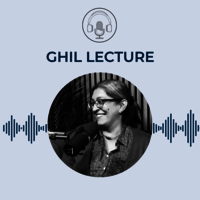
GHIL Lecture
A Decolonial Project for Europe
Gurminder K. Bhambra
8 December 2022
, 0:28 h
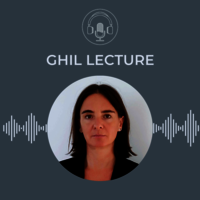
Joint Lecture
Flawed Humans, or What Makes Technology Better than Humans : Historical Considerations on Humans as ‘Faulty Constructions’
Martina Heßler
25 November 2022
, 0:40 h
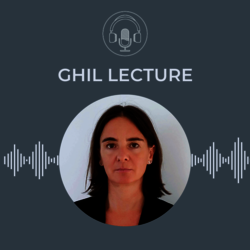
Joint Lecture
Flawed Humans, or What Makes Technology Better than Humans : Historical Considerations on Humans as ‘Faulty Constructions’
Martina Heßler
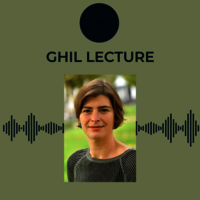
Joint Lecture
Broken Balance : A Political–Cultural History of Germany since the 1980s
Christina Morina
16 November 2022
, 0:46 h
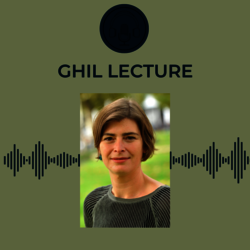
Joint Lecture
Broken Balance : A Political–Cultural History of Germany since the 1980s
Christina Morina

Interview
Forms, Voices, Networks: Feminism and the Media
Maya Caspari and Jane Freeland
23 August 2022
, 0:41 h
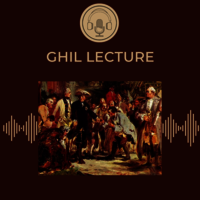
GHIL Lecture
Frederick the Great and the Public Sphere
Shiru Lim and Avi Lifschitz
6 June 2022
, 0:44 h
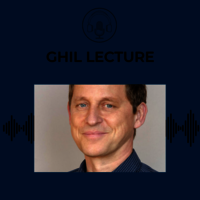
GHIL Lecture
Charlotte Beradt and Reinhart Koselleck on Dreaming in the Age of Extremes
Stefan-Ludwig Hoffmann
28 April 2022
, 0:45 h
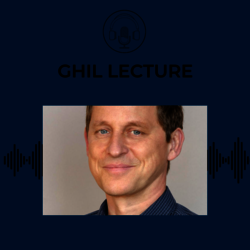
GHIL Lecture
Charlotte Beradt and Reinhart Koselleck on Dreaming in the Age of Extremes
Stefan-Ludwig Hoffmann
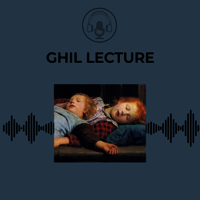
GHIL Lecture
Sleeping Through the Ages : Two Lectures on the History of Sleep in the Seventeenth and Twentieth Centuries
Hannah Ahlheim and Elizabeth Hunter
12 April 2022
, 0:45 h
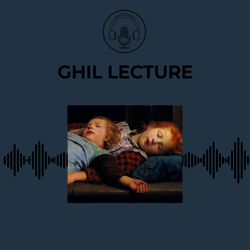
GHIL Lecture
Sleeping Through the Ages : Two Lectures on the History of Sleep in the Seventeenth and Twentieth Centuries
Hannah Ahlheim and Elizabeth Hunter

Joint Lecture
The Quest for a New World Order : International Politics Between Visions of Global Governance and Catastrophic Failures in the 1990s
Fabian Klose
24 March 2022
, 0:44 h

Joint Lecture
The Quest for a New World Order : International Politics Between Visions of Global Governance and Catastrophic Failures in the 1990s
Fabian Klose
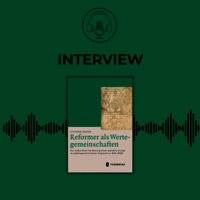
Interview
Visions of community in an Age of Viking threat : Our historian Stephan Bruhn discusses his new book
Stephan Bruhn
15 February 2022
, 0:15 h
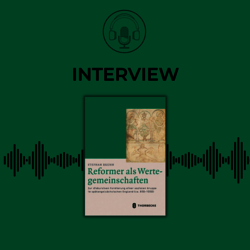
Interview
Visions of community in an Age of Viking threat : Our historian Stephan Bruhn discusses his new book
Stephan Bruhn
2021

GHIL Lecture
The Past in the Present : Historical Pedagogy of Hindu Nationalism in India
Tanika Sarkar
Summer Lecture Series
29 June 2021
, 0:59 h

GHIL Lecture
The Past in the Present : Historical Pedagogy of Hindu Nationalism in India
Tanika Sarkar

GHIL Lecture
Writing a History of Right-Wing Terrorism in Post-WWII Germany : Chances, Challenges, and the Need for New Narratives
Barbara Manthe
Summer Lecture Series
15 June 2021
, 0:35 h

GHIL Lecture
Writing a History of Right-Wing Terrorism in Post-WWII Germany : Chances, Challenges, and the Need for New Narratives
Barbara Manthe

GHIL Lecture
Medievalism, Extremism, and “White History”
Amy S. Kaufman
Summer Lecture Series
25 May 2021
, 0:37 h

Joint Lecture
Confronting Histories of Violence and Populism : What can be learnt from “the Germans”? What have "the Germans" yet to learn?
Round Table
Summer Lecture Series
4 May 2021
, 1:11 h

Joint Lecture
Confronting Histories of Violence and Populism : What can be learnt from “the Germans”? What have "the Germans" yet to learn?
Round Table

GHIL Lecture
‘How I long for the good old days’ : Nostalgia and Social Change in the Long Fourteenth Century
Hannah Skoda
30 March 2021
, 0:55 h

GHIL Lecture
‘How I long for the good old days’ : Nostalgia and Social Change in the Long Fourteenth Century
Hannah Skoda

Joint Lecture
Perceptions of Interpersonal Violence : A History of the Present
Svenja Goltermann
10 March 2021
, 0:48 h

Joint Lecture
Perceptions of Interpersonal Violence : A History of the Present
Svenja Goltermann

Joint Lecture
Contested Asylum : The History of the 2015 Refugee Crisis
Patrice Poutrus
25 February 2021

GHIL Lecture
New Cultures of Work, Youth, and Politics in India
Nandini Gooptu
23 February 2021
, 0:46 h

GHIL Lecture
The Dance of the Tapuya : On the Cultural Coding of Skin Colour in the Early Modern Period
Peter Burschel
9 February 2021
, 0:45 h

GHIL Lecture
The Dance of the Tapuya : On the Cultural Coding of Skin Colour in the Early Modern Period
Peter Burschel
2020

GHIL Lecture
Legal Role-Playing and Storytelling in Early Medieval Francia
Alice Rio
1 December 2020
, 0:54 h

GHIL Lecture
An Empire of Shaming : Reading Nazi Germany through the Violence of Laughter
Martina Kessel
Gerda Henkel Foundation Visiting Professorship Lecture
26 November 2020
, 0:46 h

GHIL Lecture
An Empire of Shaming : Reading Nazi Germany through the Violence of Laughter
Martina Kessel

GHIL Lecture
The Crisis of the Meritocracy : How Popular Demand (not Politicians) Made Britain into a Mass Education Society
Peter Mandler
GHIL Annual Lecture
6 November 2020
, 0:55 h

GHIL Lecture
The Crisis of the Meritocracy : How Popular Demand (not Politicians) Made Britain into a Mass Education Society
Peter Mandler

GHIL Lecture
Inventing Reproductive Rights : Sex, Population, and Feminism in Europe, 1945–1980
Maud Bracke
Summer Lecture Series: Feminist Histories
15 July 2020
, 1:10 h

GHIL Lecture
Inventing Reproductive Rights : Sex, Population, and Feminism in Europe, 1945–1980
Maud Bracke

GHIL Lecture
Understanding Women and Work from the Early Modern Era to the Present : A Round Table
Jane Whittle and Laure Schwartz
Summer Lecture Series: Feminist Histories
8 July 2020

GHIL Lecture
Understanding Women and Work from the Early Modern Era to the Present : A Round Table
Jane Whittle and Laure Schwartz

GHIL Lecture
Internationalist Waves and Feminist Waves in Italy, Yugoslavia, and Cuba from the 1950s to 1970s
Chiara Bonfiglioli
Summer Lecture Series: Feminist Histories
1 July 2020
, 0:56 h

GHIL Lecture
Internationalist Waves and Feminist Waves in Italy, Yugoslavia, and Cuba from the 1950s to 1970s
Chiara Bonfiglioli
2017-2019

GHIL Lecture
Cosmopolitanism in a Global Perspective
Ulrike Freitag
GHIL Annual Lecture
8 November 2019
, 0:43 h

GHIL Lecture
From Collected to Contested : The Future of Museums after the Repatriation Debate
Subhadra Das, Clémentine Deliss, Tristram Hunt, and Alice Procter
Contested Histories Seminar Series
25 June 2019
, 1:45 h

GHIL Lecture
From Collected to Contested : The Future of Museums after the Repatriation Debate
Subhadra Das, Clémentine Deliss, Tristram Hunt, and Alice Procter

GHIL Lecture
Who Owns Public History? : Two Talks on History Textbooks in Conflicted Societies
Eleni Christodoulou and Neeladri Bhattacharya
Contested Histories Seminar Series
18 June 2019
, 1:44 h

GHIL Lecture
Who Owns Public History? : Two Talks on History Textbooks in Conflicted Societies
Eleni Christodoulou and Neeladri Bhattacharya

GHIL Lecture
Hobbes’s Leviathan : Picturing the State
Quentin Skinner
GHIL Annual Lecture
9 November 2018
, 0:54 h

Joint Lecture
German and European Unification : Harmony or Dissonance?
Timothy Garton Ash
Annual lecture on contemporary German history
24 April 2018
, 0:51 h

Joint Lecture
National Security and Humanity : The Internment of Civilian 'Enemy Aliens' during the First World War
Arnd Bauerkämper
Gerda Henkel Visiting Professorship Lecture
28 November 2017
, 1:26 h

Joint Lecture
National Security and Humanity : The Internment of Civilian 'Enemy Aliens' during the First World War
Arnd Bauerkämper
2014-2016

Joint Lecture
National Expectations and Transnational Infrastructure : The Media, Global News Coverage, and International Relations in the Age of High Imperialism
Dominik Geppert
Gerda Henkel Visiting Professorship Lecture
29 November 2016
, 0:54 h

Joint Lecture
National Expectations and Transnational Infrastructure : The Media, Global News Coverage, and International Relations in the Age of High Imperialism
Dominik Geppert

GHIL Lecture
Rewriting the British 19th Century
David Cannadine
Narrating the 19th Century: New Approaches
21 June 2016
, 1:05 h

GHIL Lecture
How Close is the 19th Century? : Contemporary Reflections on a History of Europe
Johannes Paulmann
Narrating the 19th Century: New Approaches
31 May 2016
, 0:51 h

GHIL Lecture
How Close is the 19th Century? : Contemporary Reflections on a History of Europe
Johannes Paulmann

GHIL Lecture
Writing a History of 19th-Century Europe : Challenges, Conundrums, Complexities
Willibald Steinmetz
Narrating the 19th Century: New Approaches
17 May 2016
, 0:50 h

GHIL Lecture
Writing a History of 19th-Century Europe : Challenges, Conundrums, Complexities
Willibald Steinmetz

GHIL Lecture
Writing the History of 19th-Century Europe
Richard J. Evans
Narrating the 19th Century: New Approaches
3 May 2016
, 0:52 h

Joint Lecture
Life Cycle and Industrial Work : West German and West European Patterns in Times of Globalization (1975–2005)
Lutz Raphael
Gerda Henkel Visiting Professorship Lecture
15 December 2015
, 0:59 h

Joint Lecture
Life Cycle and Industrial Work : West German and West European Patterns in Times of Globalization (1975–2005)
Lutz Raphael

GHIL Lecture
Are There Different Cultures of Decision-Making in History?
Barbara Stollberg-Rilinger
GHIL Annual Lecture
13 November 2015
, 0:54 h

GHIL Lecture
Are There Different Cultures of Decision-Making in History?
Barbara Stollberg-Rilinger

GHIL Lecture
Home Ties : Objects in Migrants' Lives
Inge Weber-Newth
9 September 2015
, 0:28 h

Joint Lecture
Rites of Reserve : The German–Israeli Encounter in Luxembourg, 1952
Dan Diner
3 September 2015
, 0:56 h

GHIL Lecture
Max Weber’s work and its Relation to Historical Writing : Panel Discussion
David d’Avray, Peter Ghosh, and Joachim Radkau
11 December 2014
, 1:53 h

GHIL Lecture
Max Weber’s work and its Relation to Historical Writing : Panel Discussion
David d’Avray, Peter Ghosh, and Joachim Radkau

GHIL Lecture
Empire and the Turn to Collectivism in British Social Policy, c.1860–1914
Miles Taylor
GHIL Annual Lecture
7 November 2014
, 0:57 h

GHIL Lecture
Empire and the Turn to Collectivism in British Social Policy, c.1860–1914
Miles Taylor

GHIL Lecture
1914: What Historians Don’t Know about the Causes of the First World War : Roundtable Debate
Margaret MacMillan, Annika Mombauer, Sönke Neitzel, and John Röhl
18 June 2014
, 2:11 h

GHIL Lecture
1914: What Historians Don’t Know about the Causes of the First World War : Roundtable Debate
Margaret MacMillan, Annika Mombauer, Sönke Neitzel, and John Röhl
2012-2013

Joint Lecture
Germany, the Euro Crisis and the Future of Europe
Kenneth Dyson
Annual Lecture on Contemporary German History
25 November 2013
, 1:45 h

GHIL Lecture
The Moral Economy of Trust : Modern Trajectories
Ute Frevert
GHIL Annual Lecture
8 November 2013
, 0:54 h

Joint Lecture
Coffee Worlds : Global Players and Local Actors in 20th-Century Germany
Dorothee Wierling
Gerda Henkel Visiting Professorship Lecture
22 October 2013
, 1:00 h

Joint Lecture
Coffee Worlds : Global Players and Local Actors in 20th-Century Germany
Dorothee Wierling

GHIL Lecture
The Nazi Seizure of Power in 1933 and its Significance, 80 Years On : Public Panel Debate
Mary Fulbrook, Neil Gregor, Anthony McElligott, and Maiken Umbach
30 January 2013
, 0:55 h

GHIL Lecture
The Nazi Seizure of Power in 1933 and its Significance, 80 Years On : Public Panel Debate
Mary Fulbrook, Neil Gregor, Anthony McElligott, and Maiken Umbach

GHIL Lecture
‘Jetzt Judenfrei’: Writing Tourism in Nazi-Occupied Poland
Jane Caplan
GHIL Annual Lecture
9 November 2012
, 0:52 h

Joint Lecture
From Kaiser Wilhelm to Chancellor Merkel : The German Question on the European Stage
Andreas Rödder
Gerda Henkel Visiting Professorship Lecture
7 November 2012
, 1:31 h

Joint Lecture
From Kaiser Wilhelm to Chancellor Merkel : The German Question on the European Stage
Andreas Rödder

Joint Lecture
Remigration – Three Personal Accounts : Panel Discussion
Edgar Feuchtwanger, Jan Kavan, and Georg Stefan Troller
9 March 2012
, 1:38 h

Joint Lecture
Remigration – Three Personal Accounts : Panel Discussion
Edgar Feuchtwanger, Jan Kavan, and Georg Stefan Troller
2009-2011

Joint Lecture
Goebbels, War, and Propaganda : The Media Logic of the 'Third Reich'
Ute Daniel
Gerda Henkel Visiting Professorship Lecture
26 October 2011
, 0:57 h

GHIL Lecture
The Insiders’ Views of the Fischer Controversy : Round-Table Discussion
13 October 2011
, 1:30 h

Joint Lecture
Disgust with the 45ers? : Post-War German Historiography in a Generational Perspective
Christoph Cornelißen
8 September 2011
, 1:31 h

Joint Lecture
Disgust with the 45ers? : Post-War German Historiography in a Generational Perspective
Christoph Cornelißen

GHIL Lecture
Relationships of Universities, Museums and other Cultural Institutions to Foundations whose Companies were involved with and Profited from the Holocaust : GHIL Debates
Michael Berenbaum, Richard Evans, Wilhelm Krull and Jörg Skriebeleit
2 June 2011
, 1:34 h

GHIL Lecture
Relationships of Universities, Museums and other Cultural Institutions to Foundations whose Companies were involved with and Profited from the Holocaust : GHIL Debates
Michael Berenbaum, Richard Evans, Wilhelm Krull and Jörg Skriebeleit

GHIL Lecture
Empires and Colonies : Plenary forum
Frederick Cooper, John Darwin, and Regina Grafe
15 April 2011
, 0:51 h

GHIL Lecture
Empires and Colonies : Plenary forum
Frederick Cooper, John Darwin, and Regina Grafe

Joint Lecture
The German Foreign Office and Nazism : Image and Reality after 1945
Peter Hayes
Annual Lecture on Contemporary German History
31 March 2011
, 1:14 h

GHIL Lecture
Public History : GHIL-Debates
Franziska Augstein, Kathleen Burk, Justin Champion, Peter Mandler, and Benedikt Stuchtey
8 June 2010
, 2:22 h

GHIL Lecture
Public History : GHIL-Debates
Franziska Augstein, Kathleen Burk, Justin Champion, Peter Mandler, and Benedikt Stuchtey

GHIL Lecture
Volksgemeinschaft: Potential and Limitations of the Concept
Sir Ian Kershaw
25 March 2010
, 0:50 h

Joint Lecture
British and Germans : Perceptions and Misperceptions since the Second World War
Richard J. Evans
Annual Lecture on Contemporary German History
11 March 2010
, 1:14 h

Joint Lecture
British and Germans : Perceptions and Misperceptions since the Second World War
Richard J. Evans

GHIL Lecture
The 1970s in Europe : A Period of Promise or Disillusionment?
Hartmut Kaelble
GHIL Annual Lecture
13 November 2009
, 0:59 h
Leo Baeck Institute Lecture Series
Leo Baeck Institute Lecture Series 2013-2023
| 12/10/2023 | Daniel Magilow: What a shayna punim!: Cute Jews, Photography, and Jewish Regeneration (Leo Baeck Institute Lecture Series 2023: The Good, the Bad and the Ugly: Myths, Images and Imaginings about Jews) | Available here |
| 08/06/2023 | Sara Lipton: Marked Off in the Eyes of the Public: Anti-Jewish Imagery and the Politics of Prejudice (Leo Baeck Institute Lecture Series 2023: The Good, the Bad and the Ugly: Myths, Images and Imaginings about Jews) | Available here |
| 04/05/2023 | Nadia Valman: The Virtuous Jewess (Leo Baeck Institute Lecture Series 2023: The Good, the Bad and the Ugly: Myths, Images and Imaginings about Jews) | Available here |
| 09/03/2023 | Cathy Gelbin: Gender, Sex and Jewishness in Weimar Cinema’s Monsters (Leo Baeck Institute Lecture Series 2023: The Good, the Bad and the Ugly: Myths, Images and Imaginings about Jews) | Available here |
| 17/11/2022 | Tobias Ebbrecht-Hartmann: In Our Image: Meeting our Ultraorthodox Other on Netflix (Leo Baeck Institute London Lecture Series 2022: Popular Culture, Politics and Jews) | Available here |
| 13/10/2022 | Moshe Zimmermann: Post-Holocaust German-Jewish Symbiosis: Ephraim Kishon and the Germans (Leo Baeck Institute London Lecture Series 2022: Popular Culture, Politics and Jews) | Available here |
| 16/06/2022 | Panel discussion: Images of the Grotesque and Arabesque: The Discovery of Kafka's Drawings | Available here |
| 05/05/2022 | Lisa Schoß: A Story of Ambivalences. Jewish Topics and Characters in East German Television (Leo Baeck Institute London Lecture Series 2022: Popular Culture, Politics and Jews) | Available here |
| 17/03/2022 | Hanno Loewy: Jukebox? Jewkbox! (Leo Baeck Institute London Lecture Series 2022: Popular Culture, Politics and Jews) | Available here |
| 11/11/2021 | Sarah MacDougall: From Heartland to Homeland? – German-Jewish Émigré Artists in Britain, c. 1933-45 (Leo Baeck Lecture Series London, 2021: Conceptions of Heimat in Jewish Visual History and Culture) | Available here |
| 14/10/2021 | Natasha Gordinsky and Katja Petrowskaja: ‘Your Heimat is our Nightmare’: Post-Soviet Poetic Interventions in German Culture (Leo Baeck Lecture Series London, 2021: Conceptions of Heimat in Jewish Visual History and Culture) | Available here |
| 22/04/2021 | Ofer Ashkenazi: Heimat as a Shelter from Nazism (Leo Baeck Lecture Series London, 2021: Conceptions of Heimat in Jewish Visual History and Culture) | Available here |
| 18/03/2021 | Jan-Christopher Horak: Helmar Lerski between the Diaspora and a Jewish Homeland (Leo Baeck Lecture Series London, 2021: Conceptions of Heimat in Jewish Visual History and Culture) | Available here |
| 11/02/2021 | Hanno Loewy: Unrewarded Love: Alpine Clubs, Ski-Tourism, Folklore and the Jews (Leo Baeck Lecture Series London, 2021: Conceptions of Heimat in Jewish Visual History and Culture) | Available here |
| 19/11/2020 | Svenja Bethke: How to dress in Eretz Israel? Clothing, Fashion and Nation Building, 1880s–1948 (Leo Baeck Lecture Series London, 2019–20: Acting Jewish: Between Identity and Attire) | Available here |
| 08/10/2020 | Paul Herzberg: Acting Jewish: Perception and Reality (Leo Baeck Lecture Series London, 2019–20: Acting Jewish: Between Identity and Attire) | Available here |
| 04/03/2020 | Adi Heyman: The Big Cover-Up: Modest Fashion (Leo Baeck Lecture Series London, 2019–20: Acting Jewish: Between Identity and Attire) | Available here |
| 23/01/2020 | Kerry Wallach: ‘Coming Out’ as Jewish in Weimar Germany (Leo Baeck Lecture Series London, 2019–20: Acting Jewish: Between Identity and Attire) | Available here |
| 04/04/2019 | Nathan Abrams Treyf Jews? Jewish Gangsters in McMafia and Peaky Blinders (Leo Baeck Lecture Series London, 2018–19) | Available here |
| 14/02/2019 | Richard I. Cohen: Moses Mendelssohn – The German-Jewish Icon of Modernity (1780s–2019) (Leo Baeck Lecture Series London, 2018–19) | Available here |
| 24/01/2019 | Cilly Kugelmann: Jewish Museums between Self-Assertion and Self-Defence (Leo Baeck Lecture Series London, 2018–19) | Available here |
| 06/12/2018 | Ruth Oren: ‘Coming back to History’: The Jewish Image in Landscape Photographs of ‘Eretz-Israel’, 1898–1961 (Leo Baeck Lecture Series London, 2018–19) | Available here |
| 12/04/2018 | Martin Doerry: Lifting a Taboo: The story of a Holocaust Victim which has Never been Told Before (European Leo Baeck Lecture Series London, 2017–18) | Available here |
| 08/03/2018 | Atina Grossmann: Trauma, Privilege and Adventure in the ‘Orient’: A Refugee Family Archive (European Leo Baeck Lecture Series London, 2017–18) | Available here |
| 01/03/2018 | Thomas Harding: 'You’re doing what?' - My Family’s Response to my Trying to Save the House Stolen by the Nazis (European Leo Baeck Lecture Series London, 2017–18) | Available here |
| 07/12/2017 | Lisa Appignanesi: Losing the Dead: Before and After (European Leo Baeck Lecture Series London, 2017–18) | Available here |
30/03/2017 | Arno Paucker: Scholar and Friend (A memorial event in honour of the Leo Baeck Institute’s esteemed, longstanding former director Dr Arnold Paucker OBE) | Available here |
16/03/2017 | Panel Discussion: The Legacy of the Left and Israel: 1967–2017 (With Nick Cohen, David Feldman, Christina Späti and Peter Ullrich. European Leo Baeck Lecture Series London, 2016–17) | Available here |
26/01/2017 | Michel Dreyfus: The Two Lefts in France: Divisions over Zionism and Israel (European Leo Baeck Lecture Series London, 2016–17) | Available here |
08/12/2016 | Christina Späti: The German-Speaking Left and Israel: Legacies and Developments since 1948 (European Leo Baeck Lecture Series London, 2016–17) | Available here |
24/11/2016 | Brian Klug: Denouncing Israel: Anti-Colonialism or Antisemitism on the British Left? (European Leo Baeck Lecture Series London, 2016–17) | Available here |
14/04/2016 | Wendy Pullan: In the Shadow of the Wall: Icon and Identity in Jerusalem’s Separation Barrier (European Leo Baeck Lecture Series London, 2015–16) | Available here |
11/02/2016 | Yfaat Weiss: Political Sovereignty and Cultural Property: The Mount Scopus Enclave in Jerusalem (European Leo Baeck Lecture Series London, 2015–16) | Available here |
03/12/2015 | Thabet Abu Rass: Land, Power, and Resistance in Israel: The Case of the Bedouins of the Negev (European Leo Baeck Lecture Series London, 2015–16) | Available here |
05/11/2015 | Gunnar Lehmann: Past and Politics in the Archaeology of Israel (European Leo Baeck Lecture Series London, 2015–16) | Available here |
03/07/2014 | Jay Winter: The Great War and Jewish Memory (European Leo Baeck Lecture Series London, 2014-15) | Available here |
02/04/2014 | Roz Currie: Curating the Jewish Experience of the First World War (European Leo Baeck Lecture Series London, 2014-15) | Available here |
02/10/2013 | Sander Gilman: Cosmopolitanism and the Jews (Leo Baeck Institute Special Lecture, October 2013) | Available here |
16/05/2013 | Brian Klug: Dealing with Difference: Jews, Muslims, and the British Left Today (European Leo Baeck Lecture Series London, 2013-14) | Available here |
07/03/2013 | David Fraser: ‘Quite Contrary to the Principles of British Justice’: The Jews of the Channel Islands 1940–1945 (European Leo Baeck Lecture Series London, 2013-14) | Available here |
24/05/2011 | Sander Gilman: ‘Why the Jews are the smartest people in the universe and why this is a bad thing (European Leo Baeck Lecture Series London, 2011) | Available here |

